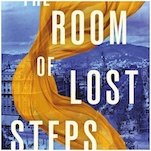The Bassoon King by Rainn Wilson

Remember when being a nerd was pitiable? If so, open this book. Readers don’t have to be devoted fans of NBC’s The Office, nor do they need to know about Rainn Wilson’s rise to fame as the show’s eccentric character named Dwight Schrute. There are more substantial reasons for you to open up The Bassoon King, including remembering what it felt like to be a weirdo.
Wilson defies the typical tropes of celebrity memoir. At points, Bassoon King’s episodes read with the comparably startling, surreal and yet downright endearing outrageousness of an Augusten Burroughs or even David Sedaris essay. As we follow Wilson from diapers to Dunder Mifflin, we discover an investigation of the experience of transitions—from the personal to the cultural, and everything between.
 “I was bone-numbingly nerdy before there was even a modicum of cool attached to that now overappropriated, worn-out word,” Wilson writes of his assuredly cringe-worthy coming-of-age. Imagine a 15-year-old Dwight Schrute being jostled, shoved, verbally berated, mocked and ostracized through the halls of his Seattle high school. This was around 1980-81, before John Hughes movies, before Revenge of the Nerds, back when being a nerd meant being subhuman. I only dwell on this point because Wilson himself is effortlessly charming and poignantly funny in his own appraisal of his past-self, working against withered appreciation for the plight of forgotten primordial nerds.
“I was bone-numbingly nerdy before there was even a modicum of cool attached to that now overappropriated, worn-out word,” Wilson writes of his assuredly cringe-worthy coming-of-age. Imagine a 15-year-old Dwight Schrute being jostled, shoved, verbally berated, mocked and ostracized through the halls of his Seattle high school. This was around 1980-81, before John Hughes movies, before Revenge of the Nerds, back when being a nerd meant being subhuman. I only dwell on this point because Wilson himself is effortlessly charming and poignantly funny in his own appraisal of his past-self, working against withered appreciation for the plight of forgotten primordial nerds.
Indeed, Wilson veers away from temptations to edit the exploits of his past in order to edify his celebrity coolness and instead bares every awkward detail. We delve into Wilson’s time in the chess club and his impassioned Dungeons & Dragons marathons, from memorizing every Monty Python sketch to scaling his father’s mountainous library of classic ‘50s sci-fi novels.
-

-

-

-

-

-

-

-

-

-

-

-

-

-

-

-

-

-

-

-

-

-

-

-

-

-

-

-

-

-

-

-

-

-

-

-

-

-

-

-








































